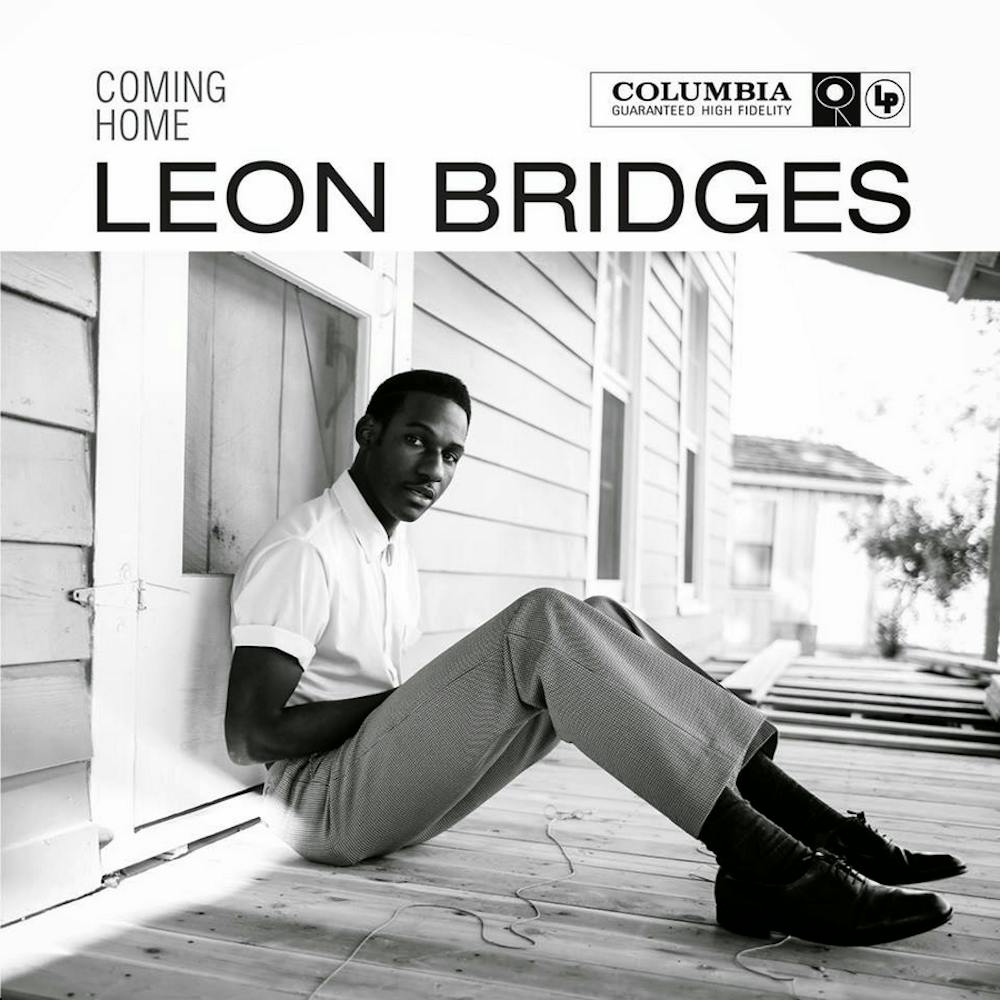https://www.youtube.com/watch?v=MTrKkqE9p1o
5/7
Released June 23, 2015, via Columbia Records
Critics are quick to make saviors out of up-and-comers, pinpointing their most prominent influence and hailing them as "The Next Whoever". That makes the line between "fresh, young act with respect and reverence for their influences" and "unoriginal nostalgia act shamelessly pilfering from their influences" finer than the tip of a ballpoint pen. There are plenty of ways to stay on the right side of that line. It helps to have once-in-a-generation vocal talent: an R&B revival act like St. Paul & the Broken Bones sounds relevant due in large part to the titanic voice and goofy charm of singer Paul Janeway. Likewise, Alabama Shakes' debut album, 2012's excellent Boys & Girls, could've fallen into nostalgia-act territory if not for the sheer massiveness of frontwoman Brittany Howard's pipes (they've also shown a willingness to evolve). The earth-shattering riffs and sky-cracking vocals of Rival Sons keep them from being the White Lion of the 21st century: a mere facsimile of classic rock bands like Free or Led Zeppelin. Of course, there are plenty of other routes out of nostalgia novelty.
So what do the best of these acts have in common? A lot of things, really. They all possess a youthful vigor, a hunger for success that keeps them pushing for new sounds. They mine their influences more deeply, twisting them into something new and fresh. They've all got style, attitude, and perspectives that are all their own. But most importantly, they've got songs. That is and always will be the key to success and relevance. If you don't have the songs, you might as well put on a big hat and kimono and be in a Stevie Ray Vaughan cover band.
That's what makes Coming Home, the debut album of Texas soul singer Leon Bridges, so refreshing. Underneath his smooth, gospel-infused voice and straight-outta-1963 arrangements are some honest-to-goodness tunes. He shows deft skill in his craft: songs like the album-opening title track and "Better Man" feature sterling hooks that stick to your ribs like Texas barbecue. Standout "Lisa Sawyer" packs some detailed imagery and a firm sense of time and place: it's New Orleans, Louisiana. It's 1963. "Small," he croons soulfully, "but a mansion in her eyes." It's that kind of keen eye and characterization that makes the best songs on Coming Home come alive, all framed in beautiful, classic R&B arrangements.
The title track and "Lisa Sawyer" are master classes in slow-burn soul groove. They're patient, they take their time. They reveal themselves slowly and all at once: little twists and turns keep these arrangements fresh. "Better Man" bops along steadily, honking sax lines meshing with Bridges' smooth voice. "Smooth Sailin'" settles into an uptempo groove that never quite explodes; it's an exercise in dynamic restraint, a quality that belies Bridges' years. "Shine" is pure Southern honey, all shimmering guitar, soulful organ, smooth sax, and choir backing vocals. "Pull Away" is another glorious slow-burner, with Bridges letting his backing vocalists punctuate the verses.
https://www.youtube.com/watch?v=HYplnRjMVhM
Restraint is a key theme throughout this album. At barely over 34 minutes long, Bridges ensures that Coming Home never overstays its welcome. The arrangements are taut and perfectly placed, Bridges' tremendous voices never strays into hysterics, and the songs never go any longer than four-ish minutes. Bridges understands that records that dip so deeply into a specific sound can get fatiguing. And it's true: there are a couple relative duds on this album. "Brown Skin Girl" features this saccharine line: "Ooh baby, don't you know you're a cutey pie?" That might've flown 50+ years ago, but we expect a little more out of our lyricists now, I think. Similarly, penultimate track "Twistin' and Groovin" leans a little too heavily on the classic I-IV-V progression that a lot of our most cherished pieces of classic rock, blues, soul, and R&B are based on. What saves these songs is Bridges' confident, self-assured delivery. When he sings that "cutey pie" line, he's not winking at the audience or hiding behind the all-encompassing shield of self-awareness. These are genuine sentiments, straight from the man's heart. It's the same kind of genuine directness that made Tobias Jesso Jr.'s (whose released his superb debut earlier this year) lyrics so effective. They may be simple, but goddamnit, does the man mean them.
It's that kind of nakedness that makes the album's final track, "River", the most touching moment on the album. Against the steady strum of an acoustic guitar that emerges through the fog like the moon over the Cumberland River, Bridges bears his soul. This song is pure gospel, like something Bridges might've sang at Sunday mass when he was younger. "Take me to your river," he sings, backed by the swell of a church choir. "I wanna go." His sins are self-evident; he knows what he's done, and he's pleading for forgiveness, to have his slate wiped clean. Whether it's to God or to the woman he loves, the sentiment remains the same. When the guitar drops out and an uncredited female vocalist steps to the front to join Bridges in harmony, it's as if all has been forgiven. It's the musical equivalent of leaving the confession booth, or emerging from the baptismal waters: you're clean now.
For a 25-year old soul singer, Leon Bridges surely has talent far beyond his years. Coming Home serves as the long-awaited exhibition for his skills, and he delivers in kind. Critics always try to pin the label of "Second Coming" on artists. It always sets artists up for failure, shouldering them with enormous expectations while simultaneously blocking them from expanding their musical palette. "The Next Dylan", "The Next Beatles", "The Next Jimi Hendrix". For Bridges, it's "The Next Sam Cooke". But Leon Bridges is not Sam Cooke. And that's ok. I'd rather not have two Sam Cookes. I'd rather have a Sam Cooke and a Leon Bridges.
https://www.youtube.com/watch?v=EC5Lisj1hGI





